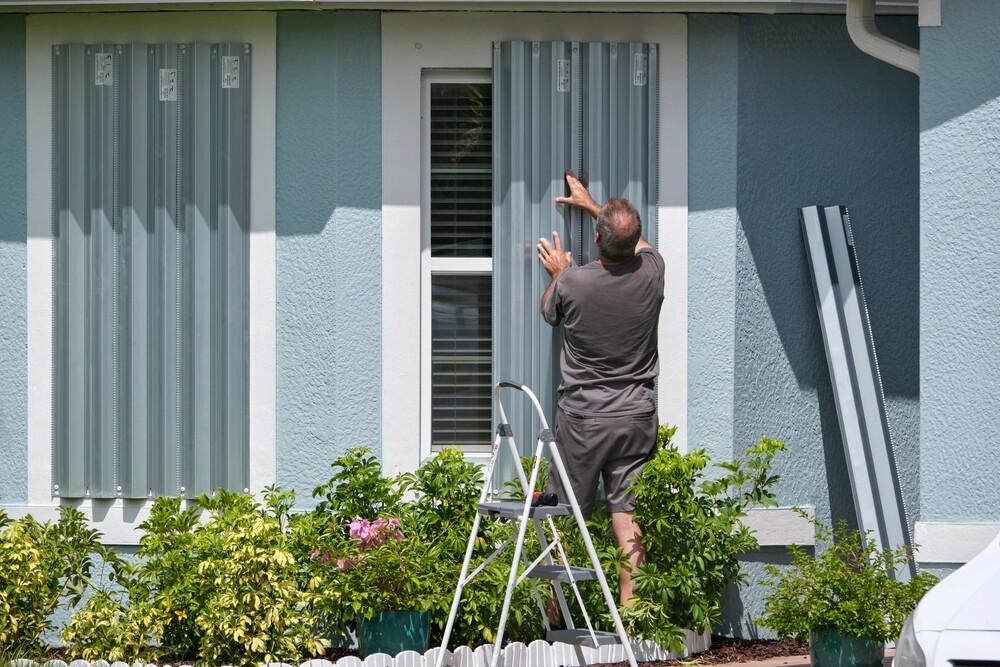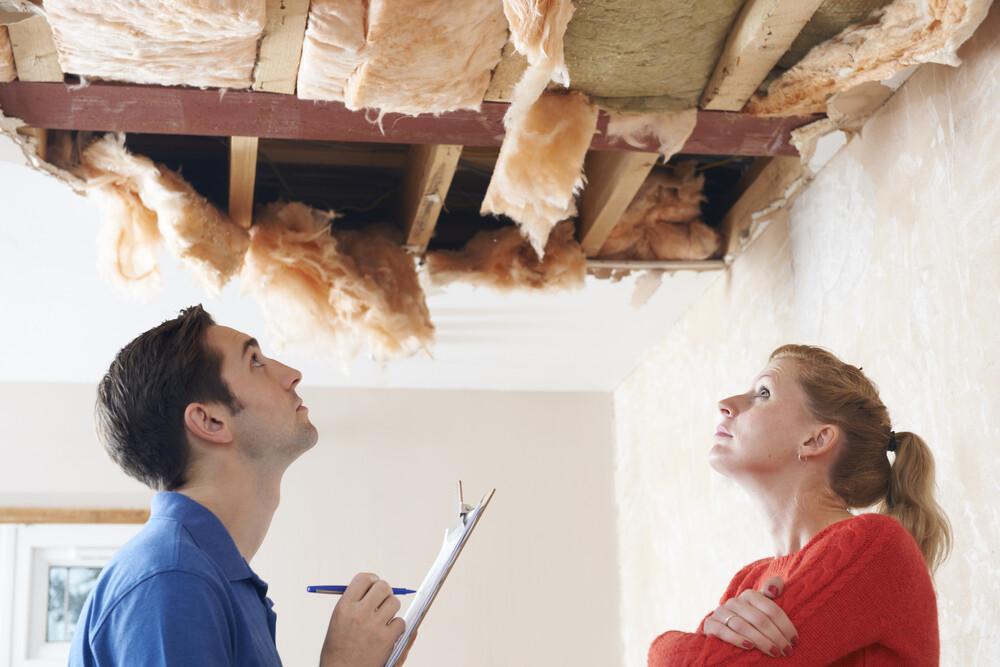Hurricanes are one of nature’s most powerful and destructive forces, causing damage that can devastate homes, businesses, and communities. While we can’t control the weather, we can control how we prepare for it. By following the right hurricane preparation tips before the storm hits, you can protect your property, gather the supplies you need, and safeguard important documents. Working with a public adjuster like Capital Adjusting Services can make a huge difference in navigating insurance claims after a storm.
Here’s a quick guide on how to prepare for a hurricane and why hiring a public adjuster is your best move after the storm passes.
Understanding the Damage Hurricanes Cause on Homes and Businesses
Before diving into hurricane preparation tips, it’s important to understand the potential destruction hurricanes can cause. These powerful storms bring high winds, heavy rainfall, and storm surges that can devastate communities. Knowing the risks can help you prepare your home for a hurricane more effectively.
- Wind Damage: Winds from a hurricane can easily rip off roofs, shatter windows, and turn outdoor objects into dangerous projectiles. Even a Category 1 storm (with winds between 74 and 95 mph) can uproot trees and cause serious damage to homes and businesses. Stronger hurricanes (Category 3 or higher) can cause catastrophic damage, leaving entire neighborhoods uninhabitable.
- Flooding: Heavy rains from hurricanes can lead to flash floods, which can seep into your home, damaging floors, walls, and electrical systems, and, in extreme cases, cause structural collapse.
Storm Surge: One of the deadliest aspects of hurricanes, a storm surge, is an abnormal rise in sea level that can lead to severe flooding along coastal areas.
Stay Informed: Monitor Hurricane Warnings and Alerts
Knowledge is power when it comes to preparing for a hurricane; thus, staying informed is one of the most important hurricane preparation tips. Whether through monitoring the local news, weather apps, or alerts from the National Hurricane Center, tracking the storm’s path, strength, and when and where it will make landfall can help you decide whether evacuation is necessary.
Pro-Tip: Sign up for weather alerts on your phone to stay updated and receive timely warnings.
Secure Your Home and Business from Hurricane Damage
Securing your property before a hurricane hit is critical to reducing damage. Here’s how to secure your home for a hurricane:
- Board up windows: Use plywood or install storm shutters to keep flying debris from shattering windows.
- Reinforce doors and garage doors: Strong winds can blow open garage doors, which can cause significant damage inside your home or business. Ensure all entry points are secure.
- Trim trees and clear gutters: Prune trees to prevent branches from breaking and falling on your home. Clear gutters to prevent water from pooling on your roof.
- Secure outdoor items: Bring in outdoor furniture, grills, and anything else that could become a projectile in high winds.
For Business Owners: Secure machinery, electronics, and inventory. In flood-prone areas, move valuable items to higher floors.

Gather Essential Emergency Supplies
Having the right supplies on hand can make a big difference during and after the storm. Stock up on essentials to last at least 72 hours. Your emergency kit should include:
- Water: At least one gallon per person per day for three days.
- Non-Perishable Food: Including canned goods and dried fruits.
- Flashlights and Batteries: Power outages are common during hurricanes, so stock up on lighting essentials.
- Portable Chargers: Keep your phones charged to help with communication.
- First Aid Kit and Medications: Ensure you have essential medical supplies.
- Tools: Wrenches and pliers can be useful for turning off utilities if needed.
Cash: ATMs may be down during power outages, so have cash on hand.
Safeguard Important Documents
In the aftermath of a hurricane, having your important documents safe and accessible will make it easier to file insurance claims and start the recovery process. Store critical paperwork in a waterproof, fireproof safe or scan and upload digital copies to a secure cloud location.
Documents you should protect include:
- Insurance policies (home, flood, auto)
- Property deeds, leases, and contracts
- Birth certificates, passports, and ID cards
- Financial and banking information
Create an Emergency Plan for Hurricanes
Whether you’re a homeowner or a business owner, having a clear emergency plan is essential for ensuring the safety of everyone involved.
- Know Your Evacuation Routes: If you live in an area prone to hurricanes, familiarize yourself with local evacuation routes.
- Establish Communication Plans: Decide on a meeting point in case family members or employees get separated. Make sure everyone knows how to communicate if cell service is down.
Emergency Contacts: Keep a list of essential contacts, including family, friends, and out-of-state contacts who can help in an emergency.
The Role of a Public Adjuster After a Hurricane
After a hurricane hit, dealing with your insurance company is one of the most stressful tasks. This is where a public adjuster, like Capital Adjusting Services, can help. A public adjuster is a licensed professional who works on your behalf, not the insurance company’s, to assess the damage, file your claim, and ensure you receive the compensation you deserve.

Why Partner with Capital Adjusting Services?
- Accurate Damage Assessment: After a hurricane, it can be difficult to identify all the damage to your property. Public adjusters from Capital Adjusting Services will thoroughly inspect your home or business, noting visible and hidden damage you might overlook.
- Maximizing Your Insurance Claim: Insurance companies may try to minimize the amount they pay out. Public adjusters understand the intricacies of insurance policies and will work to ensure you receive the full amount you’re entitled to.
- Handling the Paperwork: Filing an insurance claim requires detailed documentation and adherence to strict deadlines. Capital Adjusting Services will take care of the paperwork for you, making sure everything is filed correctly and on time.
Negotiating with the Insurance Company: Dealing with insurance companies can be frustrating, especially if they deny or underpay your claim. A public adjuster negotiates on your behalf, saving you time and stress. If your claim is denied, they’ll help you appeal the decision and fight for the compensation you deserve.
When to Contact a Public Adjuster After a Hurricane
You can contact a public adjuster at any point in the claims process, but getting them involved right after the storm is best. This allows them to document the damage early and get ahead of any potential disputes with your insurance company. You should especially consider hiring a public adjuster if:
- You’re unsure how to assess the damage or file your claim.
- Your insurance company is delaying or offering a low settlement.
- Your claim is denied, and you need help disputing the decision.
Prepare for Hurricanes and Protect What Matters Most
Hurricanes can cause extensive damage, but knowing how to prepare for a hurricane and being prepared can make all the difference. By understanding how to secure your home from a hurricane, protect your business property, gather supplies, and safeguard important documents, you’ll be in a better position to protect your home or business. After the storm, partnering with a public adjuster like Capital Adjusting Services can help you navigate the insurance claims process and ensure you receive a fair settlement.
For expert help with your storm-related insurance claims, contact Capital Adjusting Services today!


